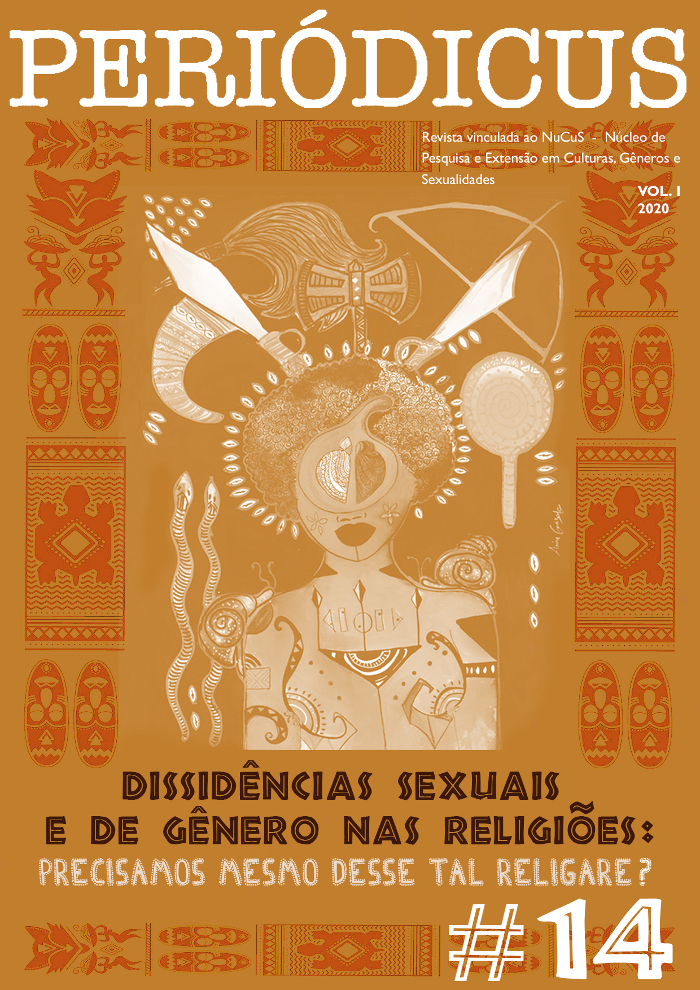Gay Christianity: Queer Theology and its reflections on the praxis of the Inclusive Christian Community of Salvador (Cocis)
DOI:
https://doi.org/10.9771/peri.v1i14.37095Abstract
Abstract: Human sexuality has been and continues to be the subject of great clashes and theological disputes in thefield of Christianity, mainly, sexualities that are considered “deviants”. While the structures of traditional Christian
theology, either by a set of practices or by their discourse, exclude sexual and gender dissidents or strive to adapt
them to what was defined as the standard, that is, cisheteronormativity, Queer Theology, on the margin of
traditional theology, seeks to recognize LGBTQI+ identities, enabling sexual minorities to express their identities
and exercise their spirituality. This article thus presents an approach to Queer Theology from the community
experience of the Inclusive Christian Community of Salvador (COCIS), which develops, in addition to the inclusion
of sexual minorities in its space for celebration, the proposal of a liberating spirituality.
Keywords: Queer Theology. Christianity. LGBTQI+.
Downloads
Downloads
Published
How to Cite
Issue
Section
License
Copyright (c) 2021 Luciano Santos Santana

This work is licensed under a Creative Commons Attribution-NonCommercial 4.0 International License.
Authors who publish in this journal agree to the following terms:
Authors retain copyright and grant the journal the right of first publication, with the work simultaneously licensed under a Creative Commons Attribution Noncommercial License that allows the work to be shared with acknowledgment of authorship and initial publication in this journal, but prohibits commercial use.
Authors are authorized to enter into separate additional contracts for non-exclusive distribution of the version of the work published in this journal (e.g., publishing in an institutional repository or as a book chapter), with acknowledgment of authorship and initial publication in this journal.
Authors are permitted and encouraged to publish and distribute their work online (e.g., in institutional repositories or on their personal website) at any point before or during the editorial process, as this can generate productive changes and increase the impact and citation of the published work (see The Effect of Open Access).








